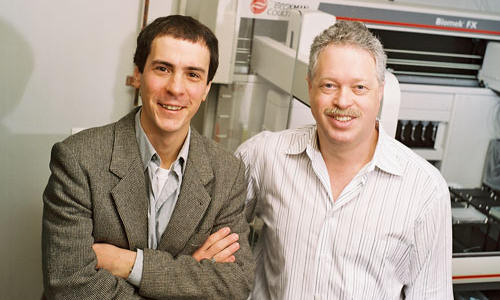Developing and testing a new anti-cancer drug can cost billions of dollars and take many years of research. Finding an effective anti-cancer medication from the pool of drugs already approved for the treatment of other medical conditions could cut a considerable amount of time and money from the process.
Now, using a novel bioinformatics approach, a team led by investigators at Beth Israel Deaconess Medical Center (BIDMC) has found that the approved antimicrobial drug pentamidine may help in the treatment of patients with advanced kidney cancer. Described online in the journal Molecular Cancer Therapeutics, the discovery reveals how linking cancer gene expression patterns with drug activity might help advance cancer care.
“The strategy of repurposing drugs that are currently being used for other indications is of significant interest to the medical community as well as the pharmaceutical and biotech industries,” says senior author Towia Libermann, PhD, Director of the Genomics, Proteomics, Bioinformatics and Systems Biology Center at BIDMC and Associate Professor of Medicine at Harvard Medical School. “Our results demonstrate that bioinformatics approaches involving the analysis and matching of cancer and drug gene signatures can indeed help us identify new candidate cancer therapeutics.”
Renal cell cancer consists of multiple subtypes that are likely caused by different genetic mutations. Over the years, Libermann has been working to identify new disease markers and therapeutic targets through gene expression signatures of renal cell cancer that distinguish these different cancer subtypes from each other, as well as from healthy individuals. In this new paper, he and his colleagues were looking for drugs that might be effective against clear cell renal cancer, the most common and highly malignant subtype of kidney cancer. Although patients with early stage disease can often be successfully treated through surgery, up to 30 percent of patients with renal cell cancer present with advanced stages of disease at the time of their diagnosis.
To pursue this search, they made use of the Connectivity Map (C-MAP) database (http://www.broadinstitute.org/cmap), a collection of gene expression data from human cancer cells treated with hundreds of small molecule drugs.
“C-MAP uses pattern-matching algorithms to enable investigators to make connections between drugs, genes and diseases through common, but inverse, changes in gene expression,” says Libermann. “It provided us with an exciting opportunity to use our renal cell cancer gene signatures and a new bioinformatics strategy to match kidney cancer gene expression profiles from individual patients with gene expression changes inducted by various commonly used drugs.”
After identifying drugs that may reverse the gene expression changes associated with renal cell cancer, the investigators used assays to measure the effect of the selected drugs on cells. This led to the identification of a small number of FDA-approved drugs that induced cell death in multiple kidney cancer cell lines. The investigators then tested three of these drugs in an animal model of renal cell cancer and demonstrated that the antimicrobial agent pentamidine (primarily used for the treatment of pneumonia) reduced tumor growth and enhanced survival. Gene expression experiments using microarrays also identified the genes in renal cell cancer that were counteracted by pentamidine.
“One of the main challenges in treating cancer is the identification of the right drug for the right individual,” explains first author Luiz Fernando Zerbini, PhD, of the International Center for Genetic Engineering and Biotechnology in Cape Town, South Africa, adding that this bioinformatics approach could be a particularly valuable lower-cost model in developing countries.
The authors say their next step will be to evaluate the potential of pentamidine in combination with the current standard-of-care therapies to treat kidney cancer. “Since the drugs we are evaluating are already FDA-approved, successful studies in preclinical animal models may enable us to rapidly move these drugs into clinical trials,” adds Libermann.
Story Source:
The above story is based on materials provided by Beth Israel Deaconess Medical Center.





